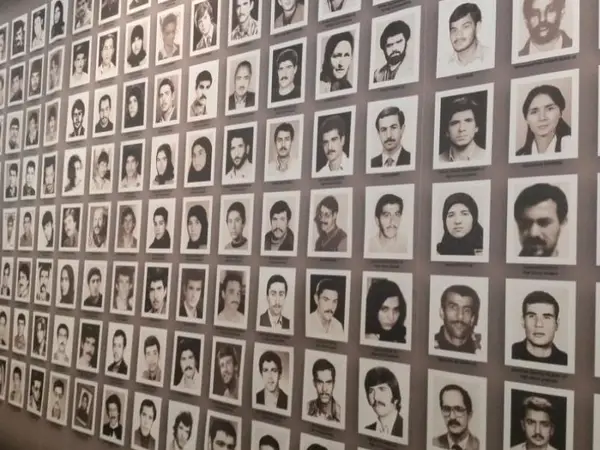Iranian security forces have once again barred family members from visiting the graves of political prisoners executed in 1988 as crackdowns on dissent continue to impact human rights.
Mansoureh Behkish, a representative of families seeking justice for those executed in 1988, said families "placed photos of their loved ones behind closed doors and showered them with flowers" at Khavaran Cemetery, east of Tehran.
Khavaran is the resting place for an undisclosed number of executed prisoners, interred in both mass and individual graves. The site was designated for the burial of non-Muslims, including Armenian Christians, Hindus, and members of the persecuted Baha'i faith.
The exact number of prisoners executed from August 1988 to February 1989 remains undisclosed by the authorities, with estimates suggesting the deaths of between 4,500 and 10,000 prisoners incarcerated at the time the clerical regime decided to eliminate those deemed oppositional. The majority of the victims were affiliated with the Mujahedin-e Khalq Organization (MEK), along with Marxists and activists from various leftist groups.
The repeated denial of entry, also enforced earlier on March 15, coincides with recent actions against the Baha'i community, where the security apparatus has forced the burial of deceased Baha'is in newly dug graves at Khavaran, continuing the harassment of Iranian Baha'i citizens.
For more than three decades since the mass execution of thousands of political prisoners in 1988 and their secretive burial in Khavaran and other locations across Iran, the government of the Islamic Republic has been actively attempting to destroy or repurpose the sites of the mass graves.
Iran has renewed its wave of executions, last year over 800 mostly political prisoners were killed as the regime struggles to fight for legitimacy on the back of the 2022 uprising which has posed the biggest challenge to the government since the founding of the Islamic Republic in 1979.

